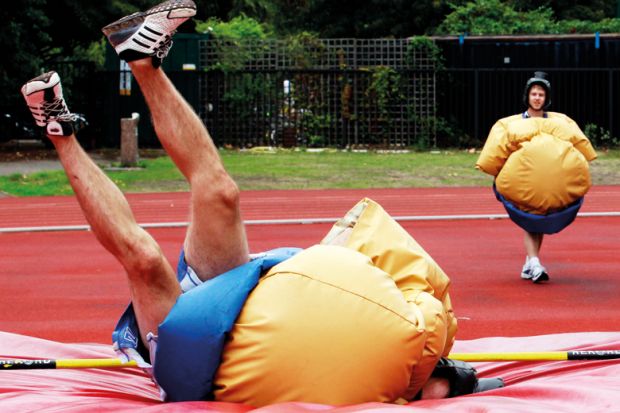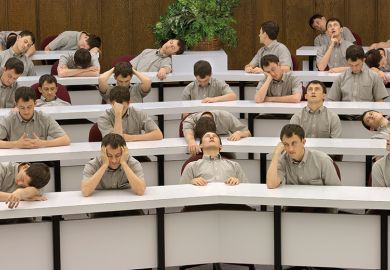A tale that circulated recently on Twitter sparked the interest of several thousand researchers familiar with the trials and tribulations of the peer review process. “Today I did something I have never done before, which was to withdraw an article under review after receiving reviewer feedback,” wrote Suzanne Young, lecturer in criminal justice at the University of Leeds.
“Like all authors, I (and co-authors) waited months to receive reviewer feedback on an article…when we did eventually get [it], we suffered the wrath of reviewer 2,” she continued.
In short, Dr Young found the reviewer’s comments so negative and unconstructive that she took the unusual step of withdrawing the paper from the journal altogether. “I wanted to take control,” she concluded, “So thank you reviewer 2, your rude, obnoxious comments have resulted in a moment of empowerment for me.”
For the uninitiated, “reviewer 2” has become something of an academic bogeyman – representative of all things negative and anxiety-inducing in the saga that is the peer review process. A brief scroll through the dedicated academic Facebook group, “Reviewer 2 must be stopped” (population: 20,000 members), will soon bring you up to speed.
A call from Times Higher Education on Twitter provided more painful anecdotes. “This work is useless. Nothing is presented,” Alexia Barrable, lecturer in education at the University of Dundee, was once told.
Others have memories of reviews of a more personal nature. “The author writes like a drunken after-dinner speaker,” Heather Marquette, professor of development politics at the University of Birmingham, was once told. “The editor told me to disregard the review and said they’d no longer be using [the] reviewer,” she explained. But "if the editor had used it, I may not have thought it was quite as funny as I did”, she added.
When pressed, it seems every published researcher has at least one bad review under their belt – with varying effects on their self-confidence. But perhaps there is much to learn from reviewer 2 comments – although not in the way these reckless reviewers intend.
As a PhD student, Kate Sang, now professor of gender and employment studies at Heriot-Watt University, was told “that I should never be allowed to publish anything ever – written in caps”. She added: “It was bruising. What did I learn from it? That academics can be brutal and also wrong.”
“I do think that these stories need to be out there,” Jason Werr, lecturer in criminology and criminal justice at De Montfort University, told THE. “Especially for early career researchers who are much more vulnerable in this regard.
“I would also say that it behoves us to remember that our role as academics is to engage in the conversation of our fields – not to stifle those conversations,” he added. “Our role as reviewers is to further that conversation and aid publication – not bruise and batter those trying to be part of the conversation. I think some people forget this and see it as an adversarial role rather than the facilitative one that it needs to be.”
As an experienced peer reviewer on journal editorial boards, Alastair Sloan, head of Cardiff University’s dental school, has seen the recurring problems of peer review from both sides.
The best advice to reviewers is “simple”, Professor Sloan said: “Don’t review outside your sphere of knowledge and read the manuscript. The role is vital and takes time to do properly. Finally, remain impartial at all times.”
In recent years, an increasing number of journals and publishing platforms have begun to experiment with more transparent approaches to peer review. Last year, for example, the open access platform eLife ran a trial whereby authors were promised publication on spec on the condition that reviewers’ comments would be published alongside the paper.
For Professor Sloan, this approach does make for “more constructive reviewing, but you still get rogue reviewers”, he cautioned.
And, having been on the receiving end, he can recommend going back to the editor if you think that a review is unfair. “We were on the receiving end of one – the review was verging on abusive,” he said. "But the editor listened to our complaints and ignored it.”
For now, it seems that the common antidote to reviewer 2’s apparent spite is to take on the bad comments, have a rant to friends or Twitter and move on. But soon, who knows? After Dr Young and colleagues set the example of withdrawing their paper, perhaps we could indeed see a revolution against reviewer 2 under way.
POSTSCRIPT:
Print headline: When reckless reviewers strike, stand your ground
Register to continue
Why register?
- Registration is free and only takes a moment
- Once registered, you can read 3 articles a month
- Sign up for our newsletter
Subscribe
Or subscribe for unlimited access to:
- Unlimited access to news, views, insights & reviews
- Digital editions
- Digital access to THE’s university and college rankings analysis
Already registered or a current subscriber?








